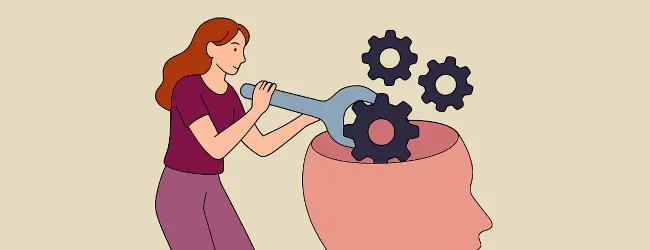I have finally come to understand how consciousness and subconsciousness work. Let’s talk about my discovery of one of our mental systems.
How to use our minds well
Sometimes, we want to understand how our minds work, especially the subconscious system.
A confused mind makes us feel so. A typical example is an inferiority complex. Although we want peace, it drives us to compete with others and struggle endlessly. It is as if someone else inside us is controlling us.
That makes us want to understand the deep mind.

However, that often doesn’t provide a clear answer or effect. In other words, we can neither understand the subconscious nor control it. That continues to trouble us.
I also had such a problem. Although I learned a lot about the subconscious, nothing worked.
Fortunately, I have successfully balanced my mind over the past months. That experience told me we don’t need to know about the subconscious. Instead, learn the role of consciousness. That would solve your mental confusion related to an inferiority complex. Today, I will explain the logic.
The subconscious vs. the conscious
We don’t need to understand the subconscious to solve our mental problems. Instead, know the role of consciousness and fulfill it. That would reduce your mental burden.
Suppose our minds are composed of the subconscious and conscious. They have different roles, as follows:
- The subconscious connects the conscious and the body. It conveys information about the body’s stress to the conscious, and if the conscious requests memory and sensation, it seeks the information and returns it. The information includes emotions as a reference if we had a similar experience in the past.
- The conscious decides logically how to act according to the information that the subconscious provided. In other words, the self is rationality. We can recognize only this consciousness. We have to ask the subconscious to obtain memories and sensations that we are not aware of.

We are consciousness. We have to judge rationally based on the information that the subconscious provided. Neglecting it causes mental problems. On the other hand, if we can do it correctly, we can solve our mental problems even without knowing the structure of the subconscious.
The function that the conscious can execute
In other words, if we are unreasonable, we suffer mentally.
To make it easier to understand, let’s look at examples.
In terms of mental function, all we can do as consciousness is the following two things:
- Ask the subconscious for the necessary information.
- Decide based on rationality.

Suppose we want to decide what to eat for dinner. It is already 7 p.m., and we are hungry. At that time, we don’t have enough information in consciousness, so we ask the subconscious, “What did I eat at yesterday’s dinner? What is left in the refrigerator?”
Our subconscious answers, “Yesterday’s dinner was chicken curry. Now I want something meaty. There are pork chunks close to their expiration in the fridge.”
Then, we decide rationally, “So, let’s have a pork stew today!”
That solves the problem of hunger. We won’t worry about dinner once we decide, even if we are still hungry. In these processes, we don’t need to know the subconscious.
Why irrationality cause confusion
On the other hand, unreasonableness hurts us.
Suppose we want to be more energetic. We ask the subconscious, “How can I have more motivation for my work?”
The subconscious answers nothing. That made us irritated and ask ourselves, “Why cannot I come up with a good idea?!”

However, in terms of rationality, that behavior is pointless. The answer from the subconscious is ‘no answer.’ It doesn’t make sense to question why there is no answer when there is no answer. It means that not knowing is a reason, and there is no more reason for not knowing. Demanding further cause is irrational.
In other words, it means we are avoiding making decisions. When we cannot come up with new ideas, we have to decide based on the limited information available at this time. It includes waiting and giving up on some exhausting activities. If we determine, we can stop worrying. We can calm down. We don’t become mentally exhausted.
Looking at our minds objectively
If we continue to be unreasonable, many mental symptoms will appear.
If we avoid rational judgment, we have no choice but to rely on other information: emotions. They are memories of past decisions. That is why we cannot change how we feel about things. We cannot escape from our past experiences.
That makes us stick to the past. We cannot try new things. We focus on only emotions. That makes us try to amplify only positive emotions and eliminate negative ones. That causes mental imbalance and emotional roller coasters.

From our consciousness, it feels as if someone else is inside us. It always drives us to follow one aspect of values. We think that we are forbidden to rest. If we fail, it continues to blame us. This state can be described as if we have lost the boundary between the self and others.
However, from the perspective of the whole mental system, those mental troubles are natural. We are simply not fulfilling the role of consciousness. Avoiding making rational judgments causes these symptoms.
The subconscious has nothing to do with it. It is functioning correctly. That is why we don’t need to understand the subconscious to solve our mental problems.
Conclusion
That is why learning the role of consciousness would solve mental problems related to an inferiority complex.
We, as consciousness, have to judge rationally based on the information that the subconscious provided.
If we can do it correctly, we can solve our mental problems even without knowing the structure of the subconscious.
That would solve your mental confusion.
Thank you for reading this article. I hope to see you in the next one.


